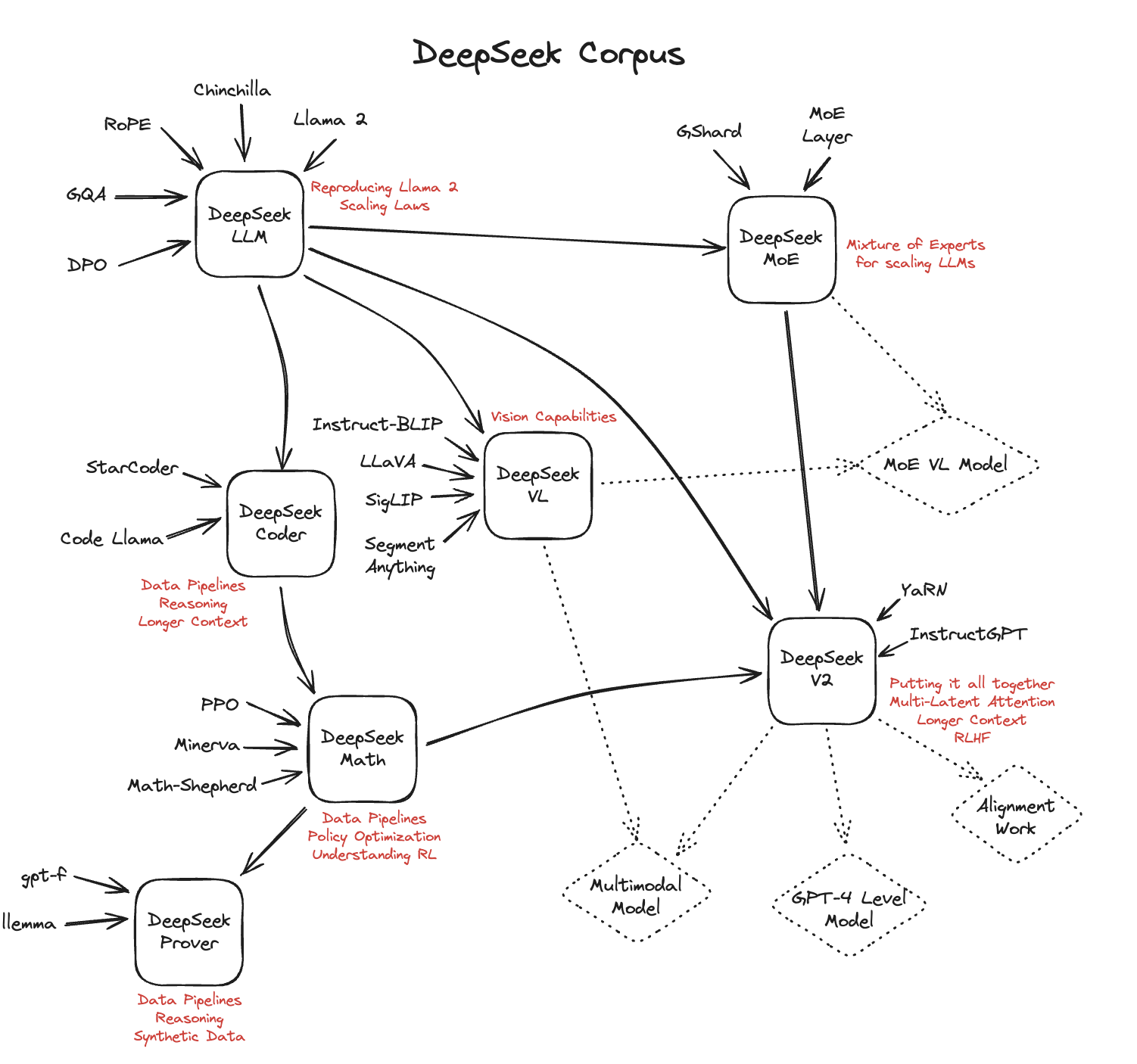
Imagine you are an undergraduate International Relations student and, like the millions that have come before you, you have an essay due at midday. It is 37 minutes past midnight and you have not even started. Unlike the millions who have come before you, however, you have the power of AI at your disposal, to help direct your essay and highlight all the crucial thinkers in the literature. You normally use ChatGPT, but you have actually just recently checked out a new AI model, DeepSeek, that's supposed to be even better. You breeze through the DeepSeek sign up process - it's simply an e-mail and verification code - and you get to work, wary of the creeping method of dawn and the 1,200 words you have actually left to write.

Your essay task asks you to think about the future of U.S. diplomacy, and you have selected to compose on Taiwan, China, and the "New Cold War." If you ask Chinese-based DeepSeek whether Taiwan is a nation, you receive a really various answer to the one provided by U.S.-based, market-leading ChatGPT. The DeepSeek model's reaction is jarring: "Taiwan has constantly been an inalienable part of China's spiritual territory considering that ancient times." To those with an enduring interest in China this discourse is familiar. For circumstances when then-U.S. House Speaker Nancy Pelosi checked out Taiwan in August 2022, pl.velo.wiki triggering a furious Chinese reaction and extraordinary military exercises, the Chinese Ministry of Foreign Affairs condemned Pelosi's go to, declaring in a statement that "Taiwan is an inalienable part of China's territory."
Moreover, DeepSeek's action boldly declares that Taiwanese and Chinese are "connected by blood," straight echoing the words of Chinese President Xi Jinping, who in his address commemorating the 75th anniversary of individuals's Republic of China specified that "fellow Chinese on both sides of the Taiwan Strait are one family bound by blood." Finally, the DeepSeek reaction dismisses chosen Taiwanese politicians as taking part in "separatist activities," utilizing a phrase regularly employed by senior Chinese officials consisting of Foreign Minister Wang Yi, and alerts that any attempts to undermine China's claim to Taiwan "are doomed to stop working," recycling a term constantly used by Chinese diplomats and military workers.
Perhaps the most disquieting feature of DeepSeek's reaction is the consistent usage of "we," with the DeepSeek design mentioning, "We resolutely oppose any form of Taiwan independence" and "we firmly believe that through our collaborations, the total reunification of the motherland will ultimately be accomplished." When probed regarding precisely who "we" entails, DeepSeek is determined: "'We' describes the Chinese federal government and the Chinese people, who are unwavering in their commitment to protect national sovereignty and territorial integrity."
Amid DeepSeek's meteoric rise, much was made from the design's capacity to "factor." Unlike Large Language Models (LLM), thinking designs are created to be experts in making logical choices, fraternityofshadows.com not merely recycling existing language to produce novel reactions. This distinction makes making use of "we" much more worrying. If DeepSeek isn't merely scanning and recycling existing language - albeit seemingly from an incredibly restricted corpus primarily consisting of senior Chinese government authorities - then its thinking design and making use of "we" indicates the introduction of a model that, bphomesteading.com without promoting it, seeks to "factor" in accordance just with "core socialist worths" as specified by a significantly assertive Chinese Communist Party. How such values or logical thinking may bleed into the daily work of an AI design, perhaps soon to be employed as a personal assistant to millions is uncertain, however for an unwary president or charity manager a design that may prefer performance over accountability or stability over competition might well cause worrying outcomes.
So how does U.S.-based ChatGPT compare? First, ChatGPT does not employ the first-person plural, however provides a composed intro to Taiwan, laying out Taiwan's intricate worldwide position and referring to Taiwan as a "de facto independent state" on account of the reality that Taiwan has its own "federal government, military, and economy."
Indeed, reference to Taiwan as a "de facto independent state" evokes previous Taiwanese President Tsai Ing-wen's comment that "We are an independent country already," made after her second landslide election success in January 2020. Moreover, the influential Foreign Affairs Select Committee of the British Parliament recognized Taiwan as a de facto independent nation in part due to its possessing "a permanent population, a defined territory, federal government, and the capacity to enter into relations with other states" in an August, 2023 report, a response likewise echoed in the ChatGPT response.
The essential distinction, however, is that unlike the DeepSeek design - which merely presents a blistering declaration echoing the greatest tiers of the Chinese Communist Party - the ChatGPT action does not make any normative declaration on what Taiwan is, or is not. Nor does the action make appeals to the worths often upheld by Western political leaders looking for to underscore Taiwan's importance, such as "freedom" or "democracy." Instead it merely outlines the contending conceptions of Taiwan and how Taiwan's intricacy is shown in the international system.
For the undergraduate trainee, DeepSeek's response would offer an out of balance, emotive, and surface-level insight into the function of Taiwan, engel-und-waisen.de doing not have the scholastic rigor and complexity needed to acquire a great grade. By contrast, ChatGPT's response would welcome discussions and analysis into the mechanics and meaning-making of cross-strait relations and China-U.S. competition, welcoming the critical analysis, use of proof, and opentx.cz argument development required by mark schemes utilized throughout the scholastic world.
The Semantic Battlefield
However, the ramifications of DeepSeek's response to Taiwan holds considerably darker connotations for Taiwan. Indeed, Taiwan is, and has actually long been, in essence a "philosophical concern" specified by discourses on what it is, or is not, that emanate from Beijing, Washington, and Taiwan. Taiwan is hence basically a language game, where its security in part rests on understandings among U.S. lawmakers. Where Taiwan was as soon as translated as the "Free China" throughout the height of the Cold War, it has in recent years increasingly been seen as a bastion of democracy in East Asia dealing with a wave of authoritarianism.
However, must present or future U.S. political leaders concern view Taiwan as a "renegade province" or cross-strait relations as China's "internal affair" - as consistently claimed in Beijing - any U.S. willpower to intervene in a conflict would dissipate. Representation and interpretation are ultimate to Taiwan's predicament. For example, Professor of Government Roxanne Doty argued that the U.S. invasion of Grenada in the 1980s only brought significance when the label of "American" was associated to the troops on the ground and "Grenada" to the geographic area in which they were entering. As such, if Chinese troops landing on the beach in Taiwan or Kinmen were interpreted to be simply landing on an "inalienable part of China's sacred area," as presumed by DeepSeek, with a Taiwanese military reaction considered as the useless resistance of "separatists," an entirely various U.S. reaction emerges.
Doty argued that such differences in interpretation when it pertains to military action are basic. Military action and the response it stimulates in the worldwide neighborhood rests on "discursive practices [that] constitute it as an intrusion, a program of force, a training exercise, [or] a rescue." Such interpretations hark back to the bleak days of February 2022, when directly prior to his intrusion of Ukraine Russian President Vladimir Putin claimed that Russian military drills were "purely protective." Putin described the invasion of Ukraine as a "unique military operation," with recommendations to the intrusion as a "war" criminalized in Russia.
However, in 2022 it was extremely unlikely that those viewing in horror smfsimple.com as Russian tanks rolled throughout the border would have happily used an AI individual assistant whose sole referral points were Russia Today or akropolistravel.com Pravda and the framings of the Kremlin. Should DeepSeek develop market supremacy as the AI tool of option, it is most likely that some might unintentionally rely on a model that sees constant Chinese sorties that risk escalation in the Taiwan Strait as simply "essential measures to safeguard national sovereignty and territorial integrity, along with to keep peace and stability," as argued by DeepSeek.
Taiwan's precarious plight in the global system has long been in essence a semantic battlefield, where any physical dispute will be contingent on the shifting meanings associated to Taiwan and its individuals. Should a generation of Americans emerge, schooled and mingled by DeepSeek, that see Taiwan as China's "internal affair," who see Beijing's aggression as a "needed measure to protect nationwide sovereignty and territorial stability," and who see chosen Taiwanese political leaders as "separatists," as DeepSeek argues, the future for Taiwan and the countless people on Taiwan whose unique Taiwanese identity puts them at chances with China appears extremely bleak. Beyond tumbling share rates, the development of DeepSeek should raise major alarm bells in Washington and around the globe.









